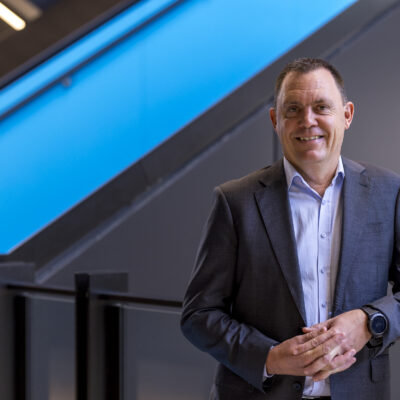Unlocking the full potential of AI in New Zealand
Russell Craig sums up a study by IDC and Microsoft NZ on how business organisations are embracing AI and harnessing its capabilities. 2018 was a remarkable year for AI where we […]
Russell Craig sums up a study by IDC and Microsoft NZ on how business organisations are embracing AI and harnessing its capabilities.
2018 was a remarkable year for AI where we witnessed this game-changing technology dominating the agendas of leading organisations and even nations. In the past year, Microsoft has helped organisations in Asia Pacific, such as Sustainable Coastlines, NV Interactive and Volpara to harness AI as the core – and catalyst – of their digital transformation strategy.
How is AI shaping up in 2019? How will the organisations that have deployed AI reap its benefits? To help answer these questions, we partnered with leading research analyst firm IDC to conduct a study involving 101 business leaders and 100 workers in New Zealand. The focus of this report was to better understand how they are embracing AI, harnessing its capabilities and understanding the key barriers to greater and faster adoption.
2019: The year of tangible AI impact
What’s most exciting to me is that the study found that AI offers genuine, tangible potential in driving the next phase of growth in New Zealand.
The study found there are two important markers contributing to a market’s competitiveness; innovation and productivity. AI is expected to double the rate of innovation and increase employee productivity by more than 50% in New Zealand by 2021.
Hence, there was no surprise that business leaders saw the importance of AI to their organisational growth. More than 80% of business leaders agreed that AI is instrumental in an organisation’s competitiveness in the next three years. In fact, organisations that have deployed some form of AI today expect their competitiveness to increase 2.0 times in three years.
One such organisation is Kotahi, an Auckland-based supply chain collaboration specialist. It works with over 40 importers, exporters and logistics companies to ensure enough container capacity is available to accommodate billions of dollars of seaborne trade each year.
Demand forecasting is crucial to the success of Kotahi’s business, particularly as over a third of New Zealand’s exports are perishable – and our primary sector products are sought after around the globe. But until recently, Kotahi’s forecasting systems for perishable goods were largely manual, revolving around Microsoft Excel spreadsheets and taking up four days or more of staff time each month to process. A better solution, it turned out, was close at hand. Data scientists from Microsoft and Kiwi tech firm UXC Eclipse worked together to build automated demand-forecasting tools. These use Microsoft’s Azure Machine Learning platform and operate in the cloud as a reasonably priced subscription service.
The new system analysed historical data to make predictions about future demand and container capacity requirements – the results were nearly instant. The four days of employee time each month devoted to manual forecasts shrank to 30 minutes, with a much more straightforward workflow that uses Microsoft’s Power BI dashboards to more readily put business intelligence tools in the hands of decision makers.
Most importantly, the accuracy of Kotahi’s forecasts jumped from 80 percent to over 90 percent. The resulting supply chain efficiencies are now saving Kotahi and its clients more than $1million from detention cost minimisation, airfreight savings and improved capacity utilisation. Shipping logistics is just one industry being transformed through the use of Microsoft’s cloud-based AI and analytics tools.
Culture and skills are key for CEOs to get right
To be competitive in today’s digital-first world, organisations need to be fast adopters of best-in-class technology, including AI. In addition, they need to start building their own unique digital capabilities. Taken together, we refer to this combination of factors as the ‘tech intensity’ of an organisation.
However, in order to fully embrace tech intensity, organisations will also need to invest in their human capital.
The rise of AI means that there is a necessity for workers to reskill and upskill to remain relevant and play a part in the workforce of tomorrow. In addition, business leaders will need to drive cultural transformation within their organisations that values experimentation, agility, proactiveness and a growth mindset.
However, the study found a significant majority of business leaders and workers believe cultural traits and behaviors that contribute to AI adoption are not being demonstrated today.
The good news is, according to our study, 87% of businesses are willing to invest in skilling and reskilling of workers to create an AI-ready workforce. However, 67% of them have yet to implement plans to train their workers. Business leaders must have the urgency to invest in workers’ training, as AI cannot progress without skilled individuals.
The jobs of today will not be the jobs of tomorrow, and already we have seen demand for software engineering roles expand rapidly beyond just the tech sector. However, building an AI-ready workforce does not necessarily mean an acute need for technological skills. The top future skills identified by business leaders include a very important soft skill needed to create new AI-led innovations – adaptability and continuous learning.
No one organisation can fill the skills gap alone, which is why the Government and private companies like Microsoft need to work together. Microsoft’s recent partnership with the Government is a step on the road to ensuring New Zealand’s Government and workers are prepared for the future.
Within the first half of this year, more than 500 Government staff will receive more than 60 workshops, giving them confidence to use a range of digital technologies and platforms, including workshops on Artificial Intelligence. The idea is that if department staff are upskilled internally, they can more quickly and confidently take advantage of AI, making the running of their departments more cost-effective and efficient and providing better services.
Here at Microsoft, we constantly look for ways to support employers and workers in ways that can help them better adapt in the new digital economy. launched AI Business school that will empower business leaders to be successful and get results from AI. Our master class series will help to get the practical knowledge how to define an AI strategy and use AI with confidence. Also, you will hear directly from industry experts how to foster “AI Ready” culture.
Ultimately, staying competitive in today’s market requires adaptability from both employers and workers. Organisations with an agile workforce and an progressive and empathetic management who are willing to deal with change will have a greater chance to succeed. This means that in an AI-enabled future, organisations that have both the skills and the mindset to adapt are in a better position to create new breakthroughs.
Russell Craig is National Technology Officer for Microsoft New Zealand.






